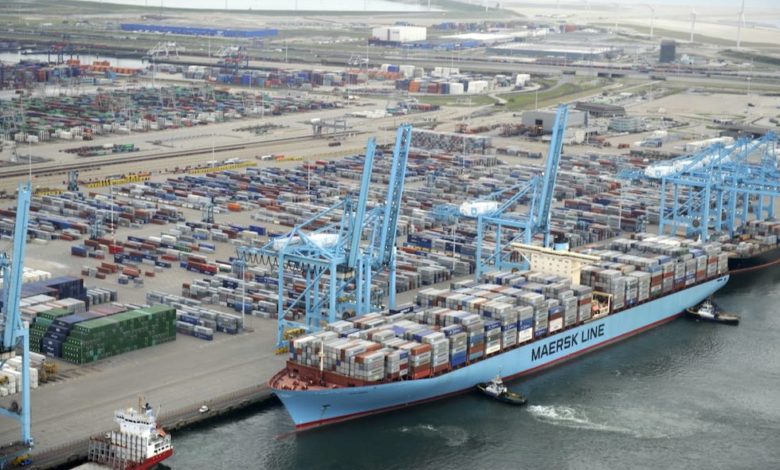Just-in-time port calls could slash boxship emissions by at least 5%

Global adoption of just-in-time (JIT) port arrivals in the container shipping sector has the potential to diminish emissions by 5%. This reduction translates to roughly 17m tonnes of CO2 emissions annually, according to a recently published white paper.
The ‘Untapped Potential of Just-In-Time Port Arrivals’ white paper is based on findings of field trials conducted by shipping digital tech startup PortXchange. Research data was gathered over a seven-month period from August 2022 – February 2023.
Datasets were taken from 323 vessels, promising a minimum fuel cost saving of $1,000, based on a bunker price of $815 per metric tonne. The data revealed that if JIT had been implemented across the studied 323 vessels, the cumulative potential savings approximated 24,000 tonnes of CO and over $6m in fuel costs.
Port call data was acquired from analysis of vessel speed profiles 48 hours prior to port arrival.
The paper examined ten strategically significant ports and identified those where JIT port calls could stand to have the biggest gains. These include Buenos Aires, Moin, Valencia, and Tanger Med where about 125 ships operated by major carriers like Maersk and MSC had significant untapped potential for JIT benefits.
It highlighted Maersk, which dominated 37 of the 71 analysed port calls. According to PortXchange findings, Maersk had the potential to curtail its CO2 emissions by 1,141 tonnes and bunker fuel by 358 tonnes. “Had JIT port arrivals been applied during these port calls, the possible savings could have soared to €99,539 in carbon credits and €231,784 in fuel costs, totalling €331,323 — or roughly €8,955 per port call,” the paper noted.
In light of the European Union Emissions Trading System (EU ETS), the study also concentrated on analysing the potential emissions reduction through the implementation of JIT port arrivals for vessels sailing from different EU ports to Valencia, Vado Ligure, and Gothenburg —identifying significant potential for CO2 savings of 885 tonnes, 359 tonnes, and 692 tonnes, respectively. With the prevailing carbon credit price at €87.87 during the study, these reductions translate to around €170,000 in potential savings on carbon credits for all vessels.
Case studies, such as the example of a vessel travelling from Genova to Valencia, were highlighted in the white paper where the ship received an updated planned time of arrival 27 hours before reaching the port. Despite receiving a speed adjustment, it maintained its initial speed, “resulting in unnecessary fuel consumption and emissions—equivalent to 15.86 tonnes of fuel and 50.11 tonnes of CO2”.
Whilst the advantages of implementing JIT port arrivals are numerous and the model is acknowledged as a viable solution for emissions reduction, its adoption within the industry remains limited.
The key to surmounting operational constraints lies in facilitating collaborative planning, PortXchange wrote, adding that industry efforts “must pivot towards data standardisation, eliminating data silos and embracing integrated, interoperable solutions”.
“These actions are imperative for engendering open communication and coordination among all stakeholders within the vessel and port ecosystem,” the paper stressed.
The latent savings in both CO2 emissions and fuel expenditure signal the pressing need for
industry-wide adoption of JIT practices.
Commenting on the findings Abhishek Nair, business development director of PortXchange, said: “Our white paper is a call for collective action, extending an invitation to governments and regulatory bodies to recognise and leverage JIT technologies to fast-track global environmental goals.”
“There is no excuse. The technology to achieve dramatic CO2 reductions in the maritime industry is at our fingertips. The white paper is a wake-up call and a guide,” he added.
PortXchange noted that the challenges of utilising JIT are further magnified by the persistent congestion plaguing ports and supply chains globally. “The methodology of JIT arrival planning, aimed at synchronising vessel arrival times with berth availability to decrease both carbon emissions and idle waiting times, finds itself increasingly compromised within the prevailing complexities of the global supply chain”.
“Consequently, this congestion disrupts voyage planning and scheduling, rendering it increasingly challenging for operators to accurately predict vessel arrival times,” the paper added.

